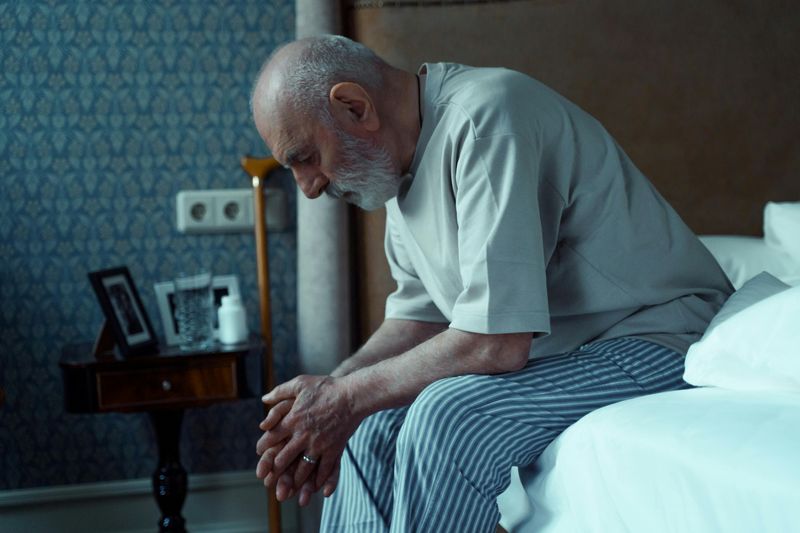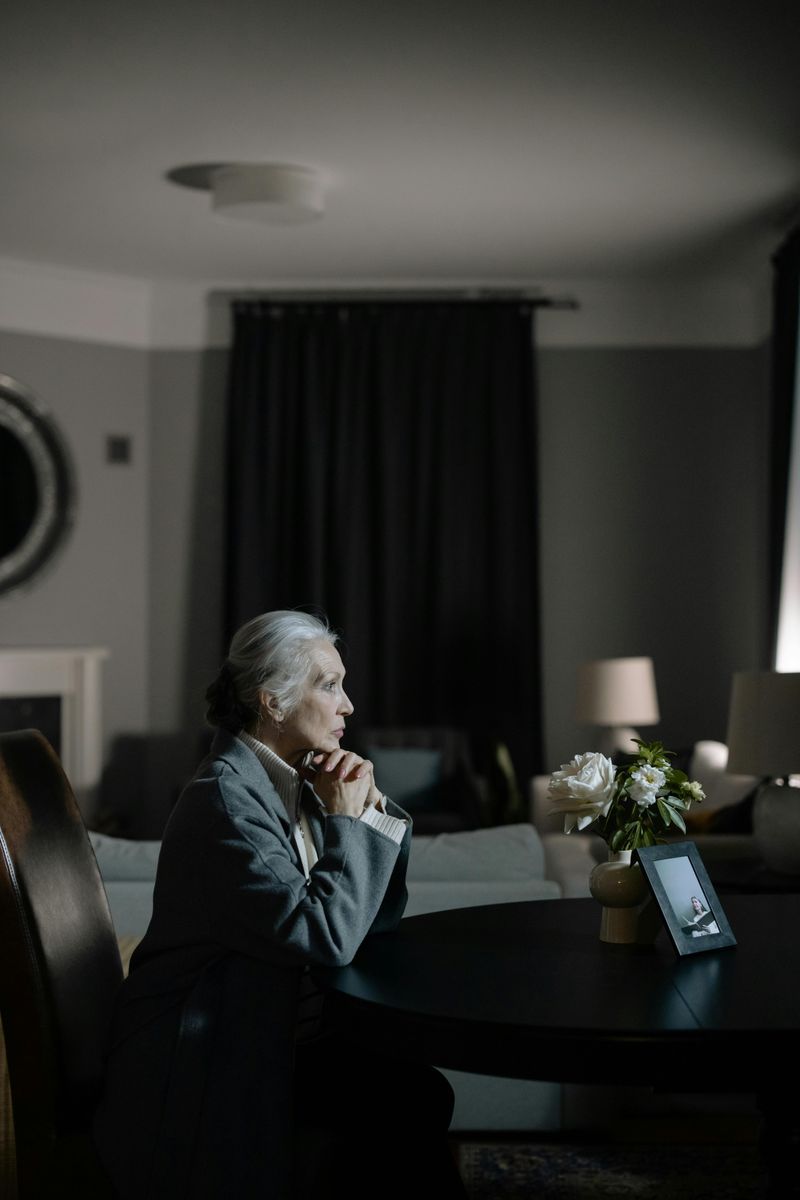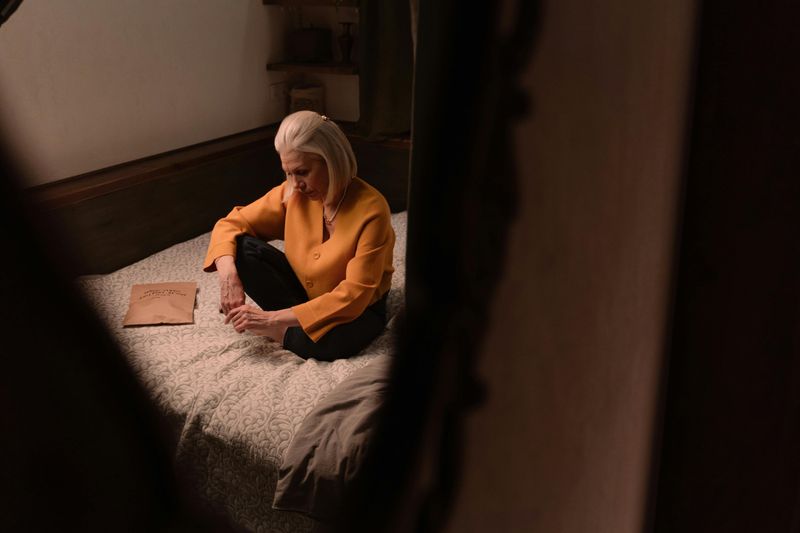Loneliness in old age isn’t just about being alone—it’s about feeling disconnected from meaningful relationships. Many people lead busy, successful lives but still end up isolated when they reach their later years. Understanding the patterns that lead to this outcome can help us build stronger, more lasting connections throughout our lives.
1. The Career-Driven Achiever

Success at work can come with a hidden price tag. When someone pours all their energy into climbing the corporate ladder, personal relationships often get pushed to the side. Late nights at the office, weekend business trips, and constant focus on the next promotion leave little room for building deep friendships.
Retirement hits these high achievers particularly hard. The daily structure and social interactions that came with work suddenly disappear. Without a strong network of friends or family who they’ve stayed close to over the years, they face a quiet house and empty calendar.
The emotional void becomes overwhelming when professional identity fades away.
2. The Perfectionist

Nothing ever seems quite good enough for perfectionists. They hold impossibly high standards not only for themselves but for everyone around them. This constant criticism wears down relationships over time, as friends and family grow tired of never measuring up to unrealistic expectations.
As years pass, tolerance for this behavior shrinks considerably. Adult children may visit less often to avoid judgment. Friends gradually drift away, choosing companions who accept them as they are.
By the time old age arrives, perfectionists often find themselves surrounded by perfectly arranged homes but devoid of the messy, beautiful reality of human connection. Their exacting nature has quietly pushed away the very people they needed most.
3. The Independent Lone Wolf

Self-reliance becomes a badge of honor for some people. They pride themselves on never asking for help, solving every problem independently, and proving they don’t need anyone. While independence has value, taking it to extremes creates invisible walls that keep others at a distance.
Years of refusing help send a clear message to friends and family: your assistance isn’t wanted or needed. Eventually, people stop offering support altogether.
When aging brings inevitable challenges—health issues, mobility problems, or simply the need for companionship—these lone wolves discover they’ve built few dependable relationships. The strength they cultivated becomes their greatest weakness, leaving them struggling alone when support matters most.
4. The Devoted Caregiver

Caregivers give endlessly to those they love. Whether raising children, supporting an aging parent, or caring for a sick spouse, they pour everything into others’ wellbeing. Their own hobbies, friendships, and interests slowly fade into the background, considered less important than caregiving duties.
But caregiving roles eventually end. Children grow up and build their own lives. Parents pass away. Spouses recover or die.
Suddenly, caregivers face an identity crisis. Who are they without someone to care for? Their social connections outside caregiving have withered from neglect. Friends moved on years ago when invitations were repeatedly declined. The purpose that defined their existence vanishes, leaving profound loneliness in its wake.
5. The Social Butterfly

Having hundreds of acquaintances doesn’t guarantee meaningful connection. Social butterflies flutter from party to party, event to event, collecting friends like souvenirs. Their calendars stay packed, and they seem endlessly popular. Yet beneath the surface, these relationships often lack genuine depth.
Fun and laughter fill their younger years, but these connections are built on entertainment rather than emotional intimacy. When age limits their ability to attend events or health issues arise, the crowd disappears quickly.
Fair-weather friends move on to the next party. Without deep bonds formed through vulnerability and mutual support, social butterflies discover their vast network was surprisingly shallow. True friendship requires more than just showing up to good times.
6. The Romantic Idealist

Some people believe romantic love is the only relationship that truly matters. They invest everything into finding or maintaining that one special partnership, letting friendships fade into the background. Their entire sense of happiness and identity becomes wrapped up in their romantic relationship.
This strategy works wonderfully—until it doesn’t. Death, divorce, or separation can strike unexpectedly. When the relationship ends, romantic idealists face devastating isolation.
They’ve neglected to cultivate other meaningful connections over the years. Friends have their own lives now. Family relationships may have been maintained only superficially. Without that central romantic partnership, their entire support system crumbles, leaving them profoundly alone when they need comfort most.
7. The Self-Sacrificing Parent

Parenthood can consume a person’s entire identity. Some parents center every decision, hobby, and relationship around their children’s needs and activities. Their own interests disappear, friendships outside the school pickup circle fade, and personal growth stops as they dedicate themselves completely to raising kids.
Children inevitably grow up and build independent lives. They move away for college, careers, or their own families. Suddenly, self-sacrificing parents face empty homes and empty days.
Without personal interests developed over the years or a wider social circle beyond parenting, they feel forgotten and abandoned. Their children love them but have their own busy lives now. The all-consuming purpose that defined them for decades vanishes overnight.

Comments
Loading…